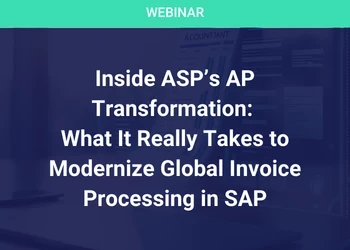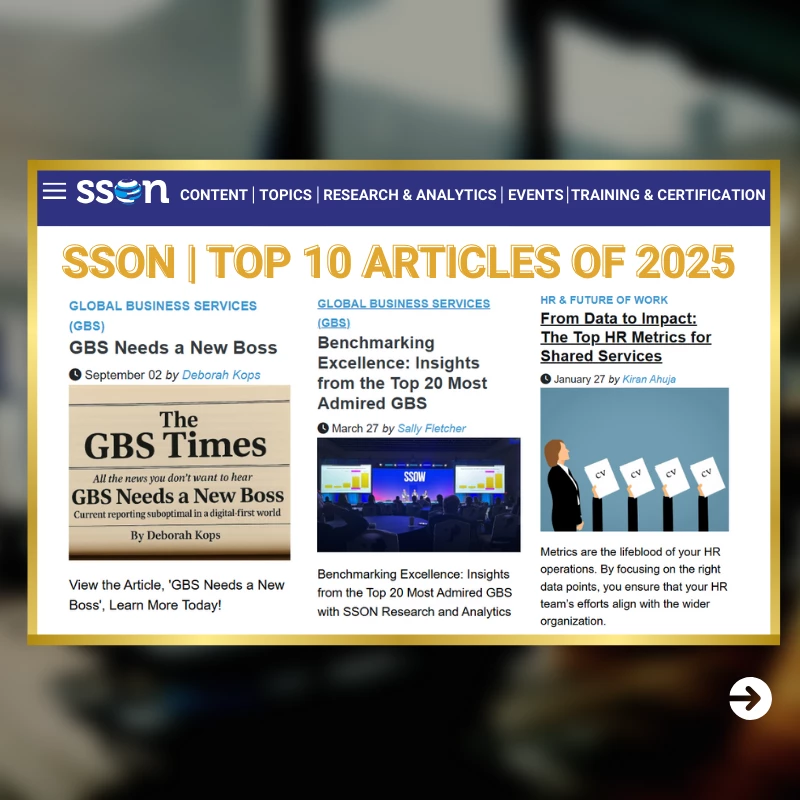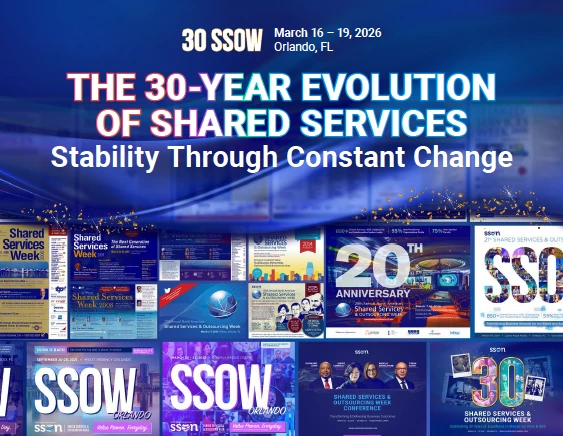Charging Methodologies of Shared Services and Business Process Outsourcing Providers
Add bookmark
Introduction
Both shared services and BPO providers need to provide insights on how services have been priced, now that back office functions are becoming more and more important to lift cost saving potentials.Recent economic developments make a focus on cash flow even more important. There are many methods out there; some of them are very well thought through but often quite generalized approaches are applied. The objective of this article is to provide an overview of charging methodologies in the SSC and BPO environment and to demonstrate the application of the various approaches. The Offshoring Institute has conducted a research study and has analyzed both the charging practices of SSCs and BPO providers. Also, the article provides in-depth details into the charging practices of a BPO provider, Accounting Plaza. Accounting Plaza has been a thought leader in service charging and provides insights in some real client cases.
Development of Finance transformation
The Finance function has gone through a massive transformation over the course of the past 15 years. It has evolved from a compliance-driven, transactional back-office function, which has been performed mainly decentralized with each legal entity in a very fragmented and non-standardized way, to a true service function. State-of-the art Finance functions are now clearly separated in high-value "Center of Competence"-like services and efficient accounting operations driven by standardized ERP systems, scanning and optical character recognition (OCR) applications and workflow technology. Advancing Finance into a service function was only possible through establishing well-run captive shared services or cooperating with specialized business process outsourcing partners. The same logic applies as well to the HR, IT and partly even the Procurement function.
Shared Services Centers – evolution from cost centers to fully responsible business units
Shared service centers (SSCs) play a vital role in advancing the Finance function. The term introduces for the first time the ‘service’ aspect into Finance as a back-office function. But centralizing Finance operations with the headquarters does not necessarily turn Finance into a service unit. The opposite is often the case: sheer centralization decreases service orientation. In order to evolve to a service function SSCs have to go one essential step further. They need to make their services transparent and they have to to find a way to charge their services appropriately to their internal customers. Although there are more than 300 captive SSCs in Europe and we are talking about shared services of the second generation many centers still struggle to provide the latter: to apply a sound and comprehensive charging strategy. In this sense some really advanced SSCs have turned into fully fledged business units of their respective corporations. Besides captive customers they serve third-party customers as well and operate as profit centers. And while external customers are being served with comprehensive and advanced pricing models internal captive customers are handled differently.
Business Process Outsourcing – the ultimate need for transparent pricing and service levels
With SSC so well established for Finance & Accounting, business process outsourcing has become a viable option too. A vast landscape of external service providers has evolved over the past decade to support both HR and accounting-focussed tasks and partly even knowledge-driven activities. BPO providers are also essential to further improve the Finance function as they offer their service not to captive customers. They operate on the third-party market and as necessity they have to be more advanced in things such as service quality and transparency – and pricing. In order to price their services competitively BPO providers need to develop charging methodologies which address each specific client situation. As a result various methodologies have been developed in recent years and SSCs can learn from them or reconsider their position if BPO would probably a feasible option for them as well.
BPO Providers
Both SSCs and BPO providers have to address the charging challenge proactively. With increasing transparency and efficiency drives in place, captive and external customers would like to understand how they are getting charged and if the principle in itself is comprehensive and fair. Also, charging needs to provide the right incentives. The customers need and want to understand how they can help to reduce their Finance & Accounting costs. As businesses operate under more and more cost pressure in their back office operations than ever before methodologically sound charging cannot be neglected any more.
Current status of charging methodologies
Since the SSCs has been adopted as back-office strategy starting almost two decades ago companies had to figure out ways on how to allocate associated costs of the centers to the service receiving entities. So neither the need nor the application of different concepts in this arena is new. Usually, a company has to have a certain model in place; sometimes the method is extremely advanced with different charges for hundreds of different transaction types, and sometimes (in fact very often) the practice is quite simple with just a plain fixed fee that is charged to a subsidiary without any correlation to the effective cost structure, and without any explanation. The bulk of the companies with SSC and/or BPO solutions in place sit somewhere in the middle.
BPO Vendor
The Offshoring Institute conducted a targeted experts study among SSCs and BPO providers in order to assess the current state of charging and the results are encouraging. In almost all cases a purposely developed and applied methodology can be identified and in the majority of the cases even multiple methods are being applied. Before the results are discussed a brief overview of the general charging methods which are commonly applied:
- Fixed price - pricing is agreed before start of operations, based on processes, activities, SLAs, or specific requirements contained in the agreement
- Time and material - price is accorded to the duration of the service provided and the amount of material to be spend during the serving of the activities/services supplied to the customer
- Transaction-based - the price is always given in proportion to the number of transaction taking place during the service provision. For this, each transaction should have a unique and particular price
- Incentive-based (KPI) - price is conditioned through the achievement of goals established before the start of the engagement. Penalties generally appear when goals are not obtained
- Business-benefit-based - the price changes in proportion to the benefit reached by the customer due to the leverage of its services to the provider
- FTE-based - the price is established as direct function of the number of employees dedicated exclusively to the engagement
- Revenue-based – a certain percentage of the customer’s revenues is fixed at the beginning of the engagement as a price for the services provided
- Production-capacity-based - the price is based on the installed production capacity of the operating units/ companies served and only changes if the capacity varies (extending or downsizing manufacturing capacity)
Whereas external outsourcers prefer the transaction-based approach (32%) as the best option SSCs apply this method in only 10% of all cases. SSCs rely on time & material charging as their favorite method instead. Further analysis reveals why: time & material is very close to cost center charging, which was usually done before SSCs were introduced and so the second highest percentage for FTE-based charging (25%) can be explained too. Both BPO providers and SSCs utilize the Fixed Price method in at least one quarter of all cases.
Incentive-based charging and business-based charging are, although often very intensively discussed, relatively rare to find in practical cases.
A close look at a combination of charging methods demonstrates the importance of fixed price charging. In combination with a transaction-based charging approach almost half of the cases analyzed can be covered. In most situations a volume-based fixed fee with a variance corridor is determined and volume deviations outside of the corridor will be charged according to a pre-determined per-unit price.
In summary we can say that charging methods are getting more sophisticated as the BPO and SSC business matures. However, dominating principles remain practicality and simplicity (fixed price) and fairness and transparency (transaction-based).
Case Study: Accounting Plaza
Introduction
The growth and development opportunities are near-unlimited for those organizations that respond quickly to market changes, regulatory changes and technological innovations. A strategically anchored, high degree of flexibility within the organization is required to react on these changes. Back office processes, such as the financial function, have to follow the pace of this dynamic environment. Added value and concrete contributions to the business objectives are vital.
Accounting Plaza, a BPO provider and one of Europe's leading financial shared service centers, supports organizations in this challenging environment by performing financial accounting and administrative HR processes for retail, financial service and healthcare clients.
"Our clients can completely focus on their core business, while we focus on optimizing their back office," says Accounting Plaza’s Jeroen Huisman.
Charging methodology
Accounting Plaza offers a variety of market-based prices, based on several different charging methodologies:
- Transaction based (price per volume unit)
- Fixed fee with yearly savings
- FTE based
- Business benefits based
- Conditional savings
"Transparency is most important in all used methodologies. This is crucial to prevent a feeling of black box thinking by the client," says Huisman. "A client has to know and understand in which way prices are related to services. Just as crucial is the possibility to influence the prices to stimulate clients to proactively join optimizations and as a result cost savings. To facilitate this process a transparent charging methodology is used in which customer specific services are more expensive than standard services. Transparent processes and costs give clear insight in costs of failure which can be charged to the ‘polluter’. This increases the awareness and leads to improved data discipline (operating levels) of delivering departments of our customers and ultimately to lower costs."
Basic principle
In order to charge clients based on the theory of the difference between standard and customer-specific processes, several principles are prominent:
- A clear understanding of all processes to be performed by the BPO provider, which will be recorded in a Product Services Matrix (PSM);
- Prices per process are defined based on the effort (direct & indirect) necessary to perform the process. To do so, time registration (hours per service line per customer) by all employees is an important input for the prices, just as Activity Based Costing of all other costs;
- The processes from the PSM and the related prices are combined in Service Level Agreements (SLA), in which responsibilities of both client and provider are secured. It is important to make the SLA a ‘living document’ so it can be updated if necessary;
- To monitor the realisation of the agreements, Accounting Plaza continuously measures on the Critical Performance Indicators (CPI) and report these within the organization and to the client.
Based on these principles it is possible to make a distinction between standard, customer-specific processes and the related prices. In the reporting it will be visible where optimizations are possible.
Conditional savings
"Accounting Plaza recently started a new and unique charging principle for some of our clients, so called conditional savings," says Huisman. "The client and provider work closely together: the client will create specified conditions and the BPO provider will deliver cost savings made possible by the creation of these conditions. The proposed savings are specified in contracts and especially depend on the effort of the client. An example is the processing of trade invoices with price differences. If the client realizes an increased data discipline at the purchasing agents, less price differences will occur. The processing of trade invoices by the BPO provider will run more efficient and as a result cost savings will be realized."
Proven concept
The charging methodologies used by Accounting Plaza have justified their existence:
- By using wide transparency in pricing the business case for one of Accounting Plaza’s biggest clients has more than doubled in the first years of service.
- For all clients Accounting Plaza guarantees a yearly efficiency saving, enforcing a continuous focus on optimization and innovation.
- "Many of our prospect show great interest in our concept of conditional savings," confirms Huisman. "It is seen as an enforcing tool to raise the low level of discipline within the business regarding administrative tasks."
Conclusion and outlook
With more and more mature shared services in place, and an emerging BPO business, proper service charging has become an important topic. Unrelated fixed prices models are getting replaced by more and more sophisticated models and often multiple methods are being applied. In a world with increasing pressure on efficiency, cross-functional optimization is vital in order to keep cost structures balanced.
Corporate leadership models of the future will require more disciplinary decision rights for the shared service organization. The days of sub-scale subsidiaries with fully fledged back-office operations are counted – which is important both to increase efficiency and focus on core processes.
Contacts
The Offshoring Institute
www.offshoring-institute.org
+49 30 5015 8298
Accounting Plaza
www.accountingplaza.nl
+31 (0)75 651 85 18


































